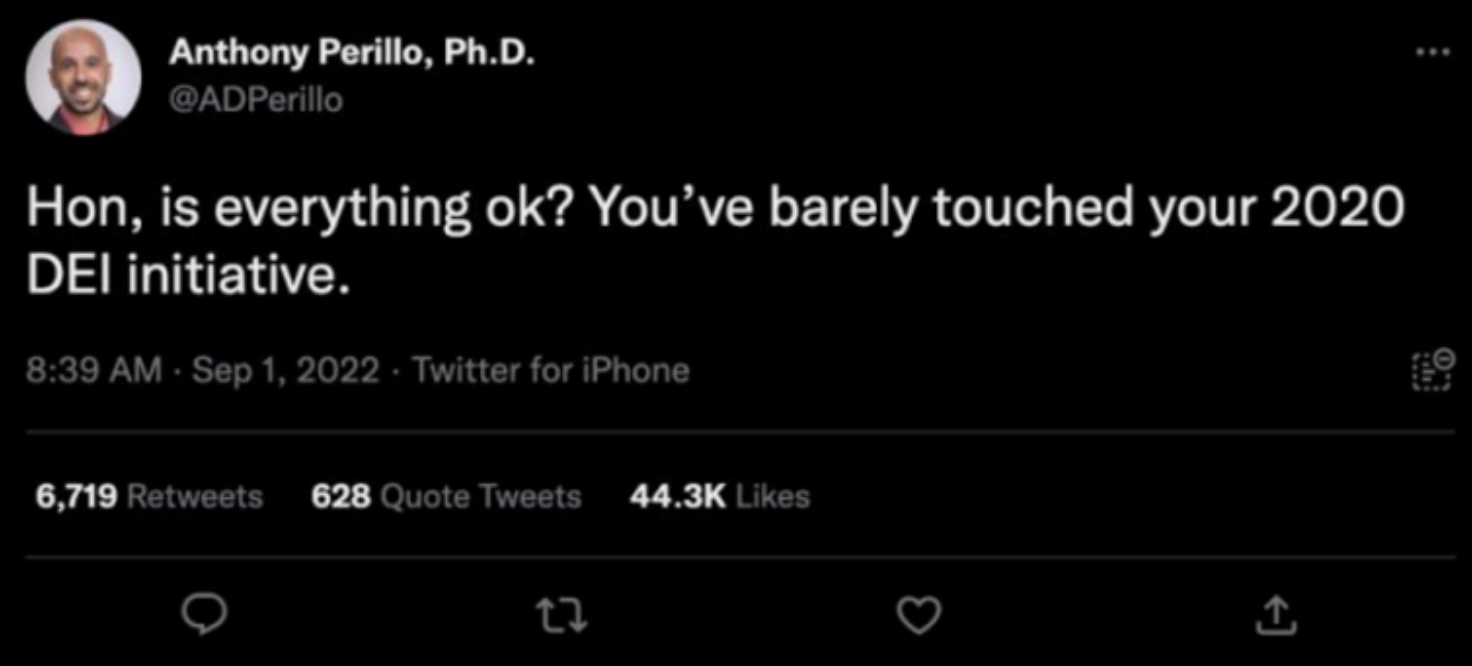Where Corporate Bleeds into Social Responsibility
It’s no secret that the year 2020 remains one of the most historically significant in recent history. Though COVID-19 reached the United States in late 2019, its impact on the country was felt in March 2020. Confusion and alarm permeated throughout the world, traveling even faster than the disease itself.
To add to the chaos, 2020 marked a point of racial reckoning within the country. Three Black people— George Floyd, Breonna Taylor and Ahmaud Arbery—emerged as names representing martyrdom and the dangers that come from being Black. Americans lacked consensus on what to do about the situation, with research showing that opinions differed by racial/ethnic groups.
The social discord, created via a mixture of racial unrest and pandemic anxiety, created a unique scramble within corporations worldwide. According to HR Dive, all companies on the Fortune 100 list had diversity initiatives on their websites by July 2020. On the surface, the conscious move by employers to push diversity, equity and inclusion (DE&I) to the forefront of their company focus is a necessary and important step. Yet, to some, the DE&I push in the workplace reeks of performative allyship, or the lack of meaningful, structural change to complement spoken promises.
Even beyond DE&I, 2020 brought a new wave of corporate social responsibility. The term, commonly referred to as CSR, is used to describe the commitment of a company to partaking in social and environmental initiatives to better their communities. Expectations of adequate CSR range, from donations to initiatives to systemic adjustments within the company. With Generation Z moving into the workforce, companies must understand that intentional CSR is not an ask but a requirement.
Part of this can be attributed to the demographics of Gen Z. Utilizing research from the Pew Research Center, National Public Radio (NPR) reported that Gen Z is the most racially and ethnically diverse within the country, as well as the most educated. With this being the case, it makes sense for the same generation to have a greater interest in their preferred brands speaking out on issues that affect their consumer base.
With this, a question remains.
Where do brands stand when it comes to corporate social responsibility?
As aforementioned, numerous corporations bolstered their focus on DE&I after the summer of 2020. However, a tweet from Anthony Perillo, Ph.D., brought a renewed spotlight on companies, specifically if they had been consistent in their promises.
Simply put, Gen Z wants brands to put their money where their mouth is. This generation is also committed to continually checking in on the progress of these organizations, fully understanding that their financial impact on the success of brands is nothing to ignore.
As of 2021, Gen Z accounted for billions of dollars in both “purchasing power” and overall influence. Not only is this group the most diverse on the market, but they are also consistently searching for two things: truth and security. Having grown up through a recession, political polarization, and much more, the youngest employees in the workforce have no interest in shallow pledges.
According to a study from BBMG, 17% of Gen Z do not trust businesses to engage in actions that will benefit the communities they serve. Even beyond that, Gen Z is three times more likely than other generations to believe that the purpose of a business is to serve the communities and overall society. The report also stated that Gen Z is more likely than all generations to expect brands and companies to utilize their voice and speak out on social issues.
If brands want to keep up with their youngest workforce members, they need to understand that the rules have changed. Whether it be providing more paid leave, engaging in internal and external conversations on the importance of DE&I, student loan support or another initiative to create an inclusive environment, Gen Z expects more from the companies that serve them.
All in all, the expectation of the youngest workforce generation is clear—mean what you say, do what you promise, and focus where it matters.

